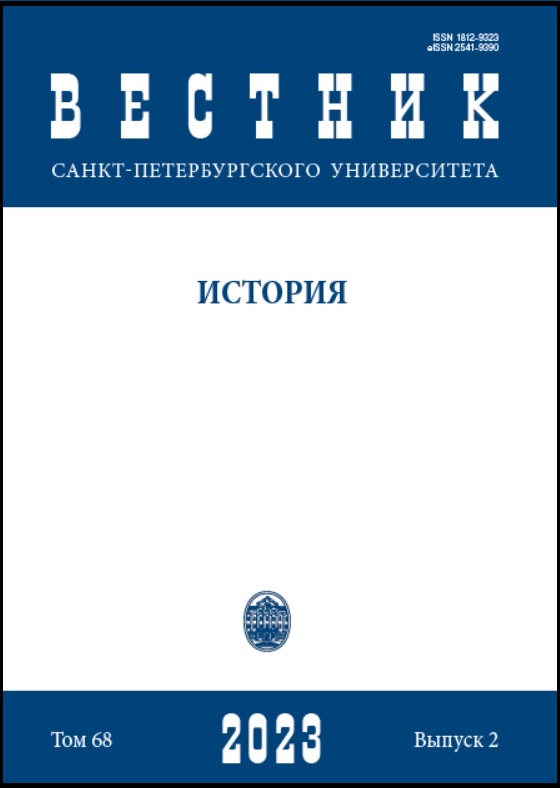Ideology of the Movement of Liberal Legalists and the Theory of Conservative Liberalism
DOI:
https://doi.org/10.21638/spbu02.2023.201Abstract
The great reforms of Alexander II formed a movement of liberal lawyers in the Russian Empire who were seeking ways of modernization of the country’s socio-political system on European models. We propose referring to this group of lawyers as “liberal legalists”. Liberal legalists are understood as an association of liberal dignitaries of the Russian Empire in the second half of the 19th — early 20th centuries, mainly judiciaries and legal scholars. The ideology of legalists can be defined as conservative liberalism, and their ideological inspiration was the famous legal scholar B. N. Chicherin. The movement of liberal legalists has not been studied in historical science, yet this topic seems important for the formation of a holistic and objective picture of the socio-political history of the Russian Empire in the second half of the 19th and
early 20th centuries. The degree of participation of legalists in the general conservative-liberal movement of the empire at the turn of the century deserves a separate discussion. This movement encompassed like-minded circles of zemstvo and urban intelligentsia, and part of the middle- and upper-class bourgeoisie. In contrast to the history of the organization of zemstvo unions described in scholarship, the history of legalist activity as a socio-political movement has not been identified or defined. The use of archives of legalist societies, memoirs and diaries of imperial lawyers enables to reconstruct this movement and determine its role in the liberation movement. The use of the problem-based approach and chronological method made it possible to carry out this reconstruction.
Keywords:
A. F. Koni, B. N. Chicherin, liberal legalists, conservative liberalism, liberal conservatism, liberalism, human rights, protective liberalism
Downloads
References
Downloads
Published
How to Cite
Issue
Section
License
Articles of "Vestnik of Saint Petersburg University. History" are open access distributed under the terms of the License Agreement with Saint Petersburg State University, which permits to the authors unrestricted distribution and self-archiving free of charge.





